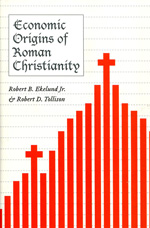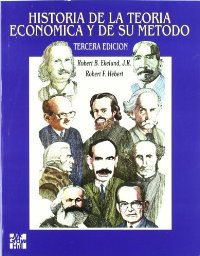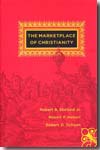Economic origins of Roman Christianity
- ISBN: 9780226200026
- Editorial: University of Chicago Press
- Fecha de la edición: 2011
- Lugar de la edición: Chicago. Estados Unidos de Norteamérica
- Encuadernación: Cartoné
- Medidas: 24 cm
- Nº Pág.: 264
- Idiomas: Inglés

In the global marketplace of ideas, few realms spark as much conflict as religion. For millions of people, it is an integral part of everyday life as reflected by a widely divergent supply of practices and philosophical perspectives. Yet, historically, the marketplace has not always been competitive. While the early Common Era saw competition between Christianity, Judaism, and the many pagan cults, Roman Christianity eventually came to dominate Western Europe. Using basic concepts of economic theory, Robert B. Ekelund Jr. and Robert D. Tollison explain the origin and subsequent spread of Roman Christianity, showing first how the standard concepts of risk, cost, and benefit can account for the demand for religion. Then, drawing on the economics of networking, entrepreneurship, and industrial organization, the book explains Christianity's rapid ascent. Like a business, the church developed sound business strategies that increased its market share to a near monopoly in the medieval period. This book offers a fascinating look at the dynamics of Christianity's rise, as well as how aspects of the church's structure - developed over the first millennium - illuminate a number of critical problems faced by the church today.








